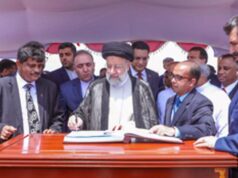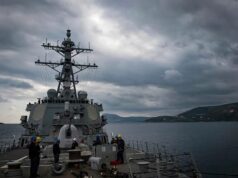Pakistan’s New Civil – Military Equation

General Qamar Javed Bajwa, like so many other past Pakistani Army Chiefs, was carefully selected by Imran’s predecessor, Nawaz Sharif, for being an unlikely threat
by Maroof Raza
Pakistan’s Army Chief General Qamar Javed Bajwa has been in the news recently, for an unusual reason, as Pakistan’s top court had set aside the three-year tenure extension in response to a petition by Advocate Riaz Rumi, a serial petitioner.
It was an unusual challenge to the military top brass and it has shocked many observers. There were even fears within Pakistan of a major civil-military standoff. Only this time, the civil element was the judiciaries – like in the case of Chief Justice Iftikhar Chowdhury and General Musharraf – and not the government of the day, as in the past was the experience of Nawaz Sharif, Benazir and her father Zulfikar Bhutto. And though Mr Khan’s cabinet had given General Bajwa the extension, by citing the worsening ‘national security situation’ (a term that is used in Pakistan, whenever no further explanation is to be given for any activity), the more glaring truth is that it was seen as a payback for General Bajwa’s support that had propelled Imran into the prime minister’s post.
General Bajwa like so many other past Pakistani Army Chief’s, was carefully selected by Imran’s predecessor, Nawaz Sharif for being as an unlikely threat, it was Bajwa who ensured that the first and only person made accountable for corruption – in a country where it has always been hard to find honest politicians – was Nawaz Sharif. An interesting fact from Pakistan’s past carries a strong message for the future. All three of Pakistan’s military rulers – General(s) Ayub Khan, Zia-ul-Haq and Pervez Musharraf – were initially seen to be apolitical and appointed army chief by superseding others in the chain for succession. But they intervened and were even welcomed by the civilians, once Pakistan’s politicians appeared incompetent or had lost complete legitimacy to govern.
But in the current situation, fears of a coup being led by a marginalised General Bajwa – whose tenure is unlikely to go beyond another six months now, as directed by the Courts – can be ignored. Apparently, Bajwa’s hopes have been dashed by his own colleagues, since a three-year extension, if it were granted to him, would stall the opportunities of promotion for several three and two-star officers. Thus, even if the Imran-Bajwa nexus wanted to challenge the Pakistani apex court’s order, there wouldn’t be many in the army who’d support them. This is one reason, though not the only one, why India’s apolitical military has never initiated and won’t ever do a coup. We have several army commands that enjoy operational independence, and they wouldn’t be willing to participate in any takeover bid. Moreover, even our three services have never challenged the civilians, together.
Coups in Pakistan have traditionally taken place when either its people’s patience has been sufficiently exhausted by its politicians, resorting to corruption and/or the marginalisation of constitutional norms, or both. It is then that the military is seen as the best answer to Pakistan’s ills, and invited to take charge of the country ( as was Ayub Khan first in 1958), which they do so now anyway, even when the sham of democracy is enacted, through their political proxies (like Imran Khan). But an important element in the intervention by the Pakistan military has always been its officer corps, which unlike India’s, is a Punjabi dominant homogeneous body, and is generally on the same page. And the norm they have always respected is that their senior-most will call the shots, even if he has superseded others to get to the top, like Ayub, Zia and Musharraf, though none of them was Punjabis.
Moreover, Pakistan’s politicians have the notorious habit of squandering opportunities that have come their way. They are so insecure that they focus on trying to take all the power in their hands (as Zulfikar Bhutto did in the mid-70s and Nawaz Sharif in the late 90s), and eat into what the military establishment has traditionally regarded as their turfs such as defence and foreign policy issues, or spend most of their energy and time, not in addressing the key issues of concern – governance, the economy, and the building of democratic institutions, et cetera – but do their very best to hound their rivals into insignificance.
But for a country where the armed forces are all too powerful and the politicians have feet of clay, this still remains a real possibility. Its many senior public figures still need to abandon their feudal ways and allow the democratic system to succeed, or else, Pakistan could slide back into its past. Whether Mr Khan can break away from the mould of the usual Pakistani politician – since he is known to be honest about his financial dealings, and certainly has an impressive aura about him – it’ll have to be seen over the coming time. One wonders whether, when Bajwa goes, will Mr Khan’s days be numbered? And would the successor of Bajwa be a General from the lot influenced by Gen Zia’s passion for hard line Islam and for favouring Jihadis?
Pakistan is already in a phase of ‘strategic overstretch’. Apart from its obsession with the threat that India poses (more so, with the recent announcements that we wish to get all of PoK back!) and Pakistan’s own doctrinal hangover of dominating Afghanistan as its ‘strategic backyard’ to fall back in the event of an Indian invasion, a long term challenge to the government in Islamabad will come from the alienated Baloch, Sindhi and Pakhtun tribal nationalists. This may just propel the military back into power by a country that desperately needs stability. And then ‘national security’ concerns could just be cited as reason enough!
Maroof Raza is a guest contributor



